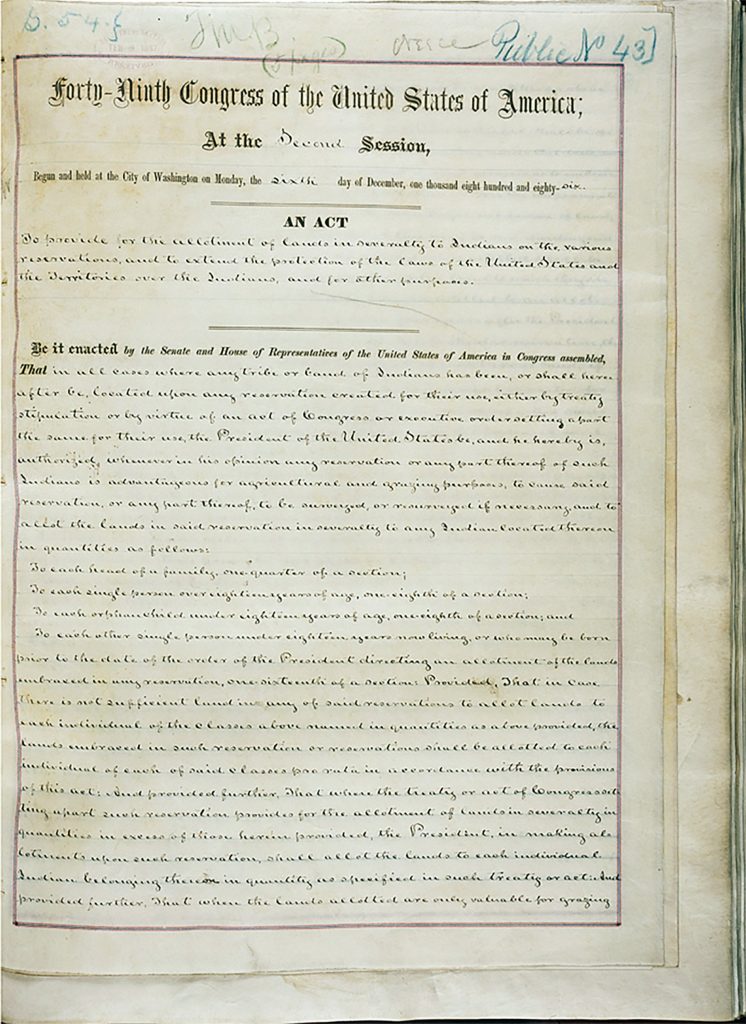February 8, 1887
The Dawes Severalty Act, also known as the General Allotment Act, was a law championed by Senator Henry Dawes of Massachusetts that gave the federal government the power to break up communally held Native land and allocate it to tribal individuals. It was approved on February 8, 1887. Some reformers saw this as a way to “Americanize” Natives, but in practice it resulted in a mass transfer of land holdings from Natives to white settlers. Further, the commission responsible for recording tribal members for land allotment purposes created the “final rolls of the Five Civilized Tribes,” meaning tribal membership was determined by the white, foreign Dawes commission, not the tribes themselves. It should be noted, however, that tribal membership was negotiated between the commission and each distinct tribe.


Read more about the Dawes Act and the Dawes Commission at the Encyclopedia of Oklahoma History and Culture.

